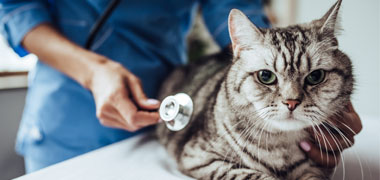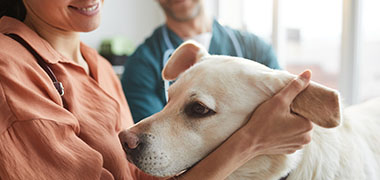
This role has a low level of AI exposure. Core skills such as adaptability, social intelligence, and complex physical tasks remain beyond the capabilities of current AI.
Explore all careersA Wildlife Veterinarian provides medical care for wild animals, working with conservation teams to diagnose, treat, and protect wildlife in various environments.
Get qualified to work as a Wildlife Veterinarian with a course recognised across Australia. Speak to a training provider to learn more.

Browse occupations related to Wildlife Veterinarian



Are you passionate about wildlife and interested in pursuing a career as a Wildlife Veterinarian? Melbourne offers a variety of training options to help you embark on this rewarding path. Currently, there is 1 Wildlife Veterinarian course available in the area, particularly designed for beginners. The Doctor of Veterinary Medicine course is an excellent starting point that will equip you with the knowledge and skills needed to care for animals in various environments, including wildlife.
The University of Melbourne is a prominent training provider offering this course in Melbourne's vibrant education sector. As a Registered Training Organisation, they ensure that the curriculum meets the standards necessary for you to thrive in the workplace. By enrolling in this Wildlife Veterinarian course, you will not only gain foundational knowledge but also open up opportunities in various related fields of study, including Animal Welfare and Veterinary courses and other specialisations in Veterinary.
Completing a course in Wildlife Veterinary can lead to various exciting job roles. Graduates may choose to explore careers as an Equine Veterinary Nurse, Veterinary Nurse, or even as a Veterinarian, among others. The demand for skilled professionals in the field is growing, and Melbourne, with its diverse ecosystems, provides a unique backdrop for wildlife-related careers. For those interested in supporting animal health, you may also consider roles such as an Animal Health Officer or an Animal Nutritionist.
Whether you're just starting or looking to upskill, Melbourne's Wildlife Veterinarian courses can help you achieve your career ambitions. With the right training from institutions like the University of Melbourne, you will be well-prepared to make a significant impact in the field of wildlife care and veterinary medicine. Explore the available course today and take the first step towards a fulfilling career in wildlife healthcare by visiting the Wildlife Veterinarian courses in Melbourne page.